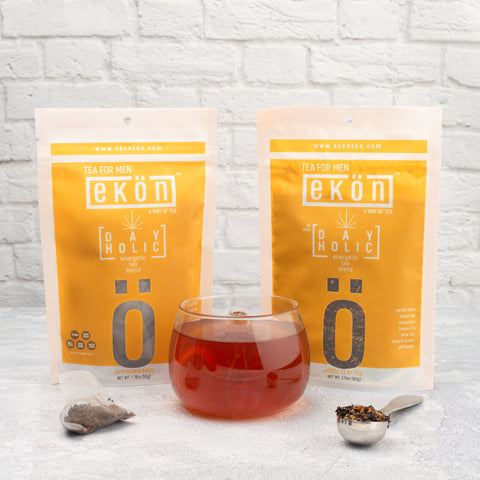
Make every morning extraordinary with an exceptional blend of Tea which is the perfect choice for those seeking an energizing start to their day. Unlock your full potential, embrace vitality, and experience the difference with rich and flavorful with hazelnut flavor and cinnamon sweetness. A perfect way to start the day!, and embark on your own journey with an ancient beverage that has delighted the world for centuries.
Are you wondering about the difference between Theine vs. Caffeine? Is it going to wake you up anyway?
Let's delve into the essentials and discover the truth behind these questions. This knowledge is essential for those considering a switch from coffee to tea.
First, let's address whether tea is the same as coffee and if green tea contains caffeine. These initial curiosities often arise when contemplating the switch. Finding the answer isn't always easy. Let's explore the differences together.
Coffee originates from the Ethiopian highlands and is mostly grown in tropical/subtropical countries such as Brazil. It is derived from coffee trees, which are shrubs of the genus Coffea. On the other hand, tea comes from the Camellia Sinensis plant, native to southern China, and its sister, Camellia Assamica, found in Assam, India.
While coffee and tea come from different plants, the molecule responsible for waking us up and providing energy is the same: caffeine. However, caffeine is metabolized differently in the body than theine. Therefore, it's safe to say that tea does contain caffeine.
The main difference lies in how Theine vs. Caffeine is absorbed:
Despite coffee having higher caffeine content than tea, the absorption process in different organs results in varying effects on our bodies.
- Tea is absorbed in the small intestine, taking a longer route, resulting in better and slower absorption.
- Coffee, on the other hand, goes directly to the stomach, leading to a shorter path and faster absorption of the molecule.

It's worth noting that black tea, as we'll discuss below, contains the most caffeine among all tea varieties.
Now, let's explore how Coffee and Tea stimulate our bodies:
Coffee produces an immediate, peak stimulation that quickly rises and falls, providing a four-hour duration of stimulation. However, it can also cause increased nervousness, anxiety, and heart rate. Tea, on the other hand, offers a gradual and consistent stimulation without a peak. The duration of stimulation depends on the type of tea. Black tea, in particular, has the highest caffeine content and can last as long as coffee, about four hours.
But what if you're a coffee lover?
Many people claim that tea doesn't taste like anything, but is that really true? The art of tea preparation is often overlooked. To fully appreciate tea's flavors, it's important to understand the different types of tea, how they are brewed, and the significance of infusion time and temperature.
While each tea blend has a unique brewing temperature, many people are unaware of the importance of controlling brewing time and temperature. These variables play a significant role since exceeding the recommended time or temperature can lead to the release of excessive tannins, resulting in a sour taste in the tea. This is particularly crucial with green tea, which is sensitive to tannins and also contains caffeine. Take extra care with its infusion time to enjoy its full flavor and benefits.




